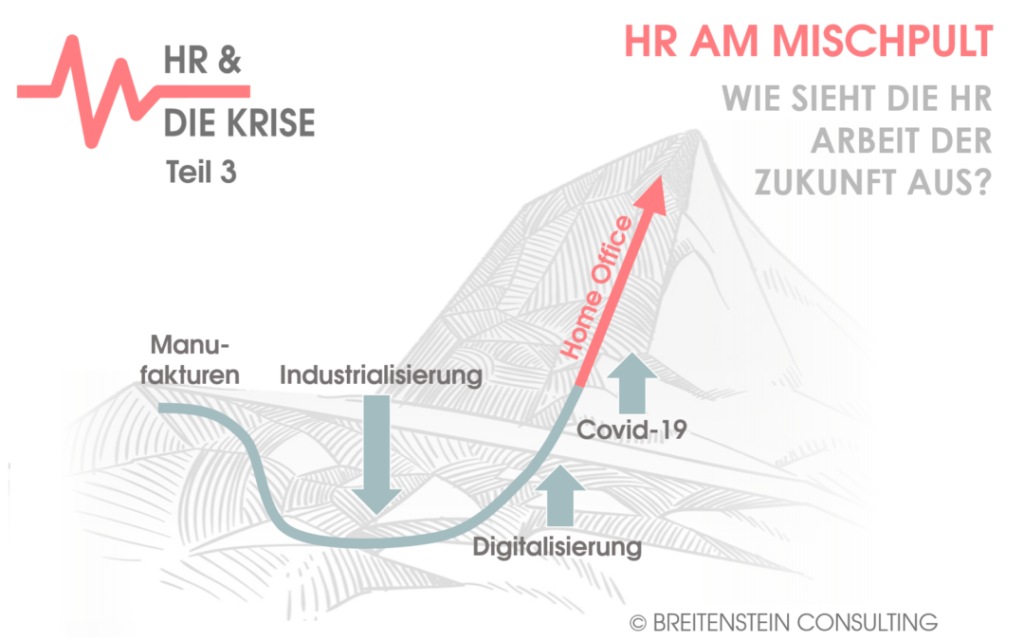What will HR work look like in the future?
At the HR BarCamp on October 24, we discussed the future role of HR with HR managers from various companies. And we developed the idea that there could be a radical individualization of employment conditions in the future. We have consistently developed this idea further here. What new role would HR then have to play?
What would be needed to successfully implement this strategy?
De-industrialization as a long-term trend
Let’s take a look back at the roots of HR:
One prerequisite for the industrial rise of HR as a function was the standardization of employment conditions. Equal pay, equal working hours and equal working conditions provided the predictability and synchronization needed for efficient mass production.
Work regulations were strict, the diversity of roles was tightly controlled, wage systems were manageable, and organizational structures resembled military hierarchies: efficient, effective, and powerful.
Human Resources was the custodian of this system of order – from the 1970s onwards also as an intermediary between the collective bargaining parties and the co-determination committees. But if we are honest, the main focus was on the ‚calculability‚ of work performance and labor costs. They were the basis of economic (and social!) progress and prosperity.
Job profiles, classifications, remuneration systems, time clocks, part-time work, promotion guidelines, job plans, headcount budgets, orientation values, target systems, lists of competencies, dress codes – all of this is an expression of a fair and manageable system of order.
Legal framework requirements such as the Holiday Protection Act, wage maintenance, collective bargaining agreements and working time legislation provided the basis for this.
Many HR managers felt that their primary role was to act as custodians of these systems – the keyword here being ‚governance‘. This entailed a number of consequences for the identity and attitude that HR professionals had to bring with them. A significant part of our value proposition was to maximize the standardization of the ‚human‘ element of work and make it available at market prices.
But if we are honest, we have been feeling the pressure for many years to make these rigid systems more flexible: trust-based flexitime, flatter hierarchies, and the abolition of ranks and titles have been an expression of a de-industrialization of employment conditions since the 1990s.
The direction of this development is increasing individualization and flexibilization:
Trust-based working hours, flexible salary bands, complex dynamic job maps, catalogs of skills, etc. have already initiated a de-industrialization of the employer-employee relationship years ago.
Many start-ups have snatched away many candidates from industrial companies, and attracted the GenY’ler, who are striving for individuality, because there was no time clock and no rigid role profile, or because they were allowed to bring their dog with them.
The increasing digitalization of many business models and the resulting changes in roles have forced and continue to force changes in the traditional industrial organization of labor.
The agility debate of the past five years has only added another level to the spiral:
Complex, creative product requirements could no longer be met by highly standardized industrial ‚functions‘. Flexible roles in changing teams, maximum autonomy and collective decision-making processes, flat or no hierarchies, self-management, ownership as an ideal, spaces for individual development, work-life integration, holocracy, MBO instead of time tracking, SCRUM instead of superiors, development, purpose and intrinsic motivation as concepts – all this is an expression of an increasing individualization and flexibilization of employment conditions. Nevertheless, most companies still have the old regulatory frameworks with job profiles, groupings, functional levels, collective agreements and, in most cases, a tangle of company agreements that also had to be laboriously negotiated with the works councils. Within these limits, everything has to take place in the ‚company‘.
Home office opens a door to a new dimension
You could just say:
So now, in addition to the right to vacation, there is also a right to a few days of home office – so what?
Hubertus Heil is already thinking about it. Is home office just another privilege on the employee side that has to be organized by the company? We think it is coming and is much more! Taking a step towards establishing home office opens a very special door in our post-industrial development, which will have far-reaching consequences for the organization of work and thus for the role of HR in particular: a great opportunity for HR and companies. The systems of order described above are almost all tied to the ‚place‘ of the company. You leave this framework when you leave the company. Cynically, you could say: that’s what ‚Unrast‘ is for.
Answering emails at home has been around for a long time. However, a comprehensive home office raises completely new questions for a possible regulatory framework:
- Who can/is allowed to do how much work at home? Who can’t? Is it a privilege?
- Which activities are suitable for home office (for whom) – and which are not?
- Who even has the necessary options at home (technically, spatially, etc.)?
- How do you adapt work to changing life phases and circumstances?
- How does performance recording work, how can performance be evaluated if not through active presence?
- How do you prevent the dissolution of boundaries between work and life and protect employees?
- How do you manage virtual work/virtual teams?
- How do you recognize in time when someone is slipping, withdrawing?
- How do you create spaces for collaboration – where is virtual useful, where is personal necessary?
- How do you create networking, how about learning on the job, how about peer counseling?
- How do you recognize conflicts, overwork, the blurring of work boundaries, inner immigration?
- How does loyalty to the employer arise – when there is a lack of physical proximity?
- What is even close to home – close to work?
- Maybe even in the vacation home? Possibly abroad?
- The question of whether the employee is abroad is then followed by questions such as social security, tax, permanent establishment and applicable labor law
This long list makes it clear that there is probably no company regulatory system that is not affected by one of these fundamental questions.
Home office opens a door and forces a new beginning in the operational organization of work. And this goes far beyond the question of insurance and health protection or performance evaluation. Changing this and giving both workplaces and workforce the necessary quantum leap in change is an ordoliberal task for HR in the coming years. What is needed is a new flexible, dynamic system of rules AND the necessary cultural change.
What if you really think this through to the end?
HR not only has to reinvent employment conditions, but also itself:
If you think this trend towards individualization through to its logical conclusion, you end up with a maximally flexible structure in the employment conditions that are individually adapted to the specific requirements of the role and the needs of the employee. This opens up a whole range of levers that could be adjusted:
- Role(s) and required value contributions and decision-making scope. Necessary integration into physical or digital work processes and tools.
- Necessary networking in the organization with colleagues, stakeholders, customers.
- Resulting presence requirements (minimum standards, leeway).
- Goals, measurement criteria, dimensions of success and performance.
- Requirements for leadership and collaboration.
- Compensation and benefits that are fair and competitive
- At the same time, there are a number of aspects to be considered on the part of the employees:
- Required personal qualities, values, attitude, social skills and talents
- Methodical and professional skills/experience and further development
- Personal circumstances, private context, phases of life, plannability?
- Development expectations, need for support
Is there a flexible regulatory framework in which employment conditions can be flexibly tailored to the individual needs of the person and the role, as in a cafeteria system?
People like to compare themselves
A positive function of the old regulatory systems was also justice. A rigid framework with functions and remuneration systems establishes a certain degree of fairness. How do you prevent standards from escalating when you maximize flexibility? Especially since the principle of wage maintenance still applies? How do you create flexibility when standards (money, homeworking, time flexibility,..) can no longer be reversed once they have been achieved? Can there be a gatekeeper who, in the event of dynamic change, can grant and withdraw privileges depending on the situation? Would you leave something like that to the free play of forces? Do you let the managers decide that themselves?
We believe that a whole new area of responsibility for human resources is emerging here:
the role of a trustee between the short- and long-term interests of an organization and the interests and needs of the individual employee. This has always been the case, but a rigid framework of employment conditions has protected HR from wild negotiations. Don’t create any precedents! What if in the future there were individual negotiations of framework conditions for a job within a flexible regulatory framework? Like an equalizer in a recording studio, the terms of employment are adapted in several dimensions to the needs of the individual and the organization. And if necessary (changed requirements, life circumstances), they can also be permanently readjusted. And, ideally, when a person changes roles, concessions should be reversible.
What does human resources need to do this?
Fulfilling a fiduciary decision-making and design role in a dynamic system is no easy challenge:
- HR of the future needs a very deep understanding of the business, because it must also translate changes in strategy and business activities into changing requirements for roles and competencies. You can no longer pull a standard job profile out of your pocket.
A continuous exchange with managers is therefore a basic requirement.
- The same proximity to employees. Changes in individual circumstances and abilities must be taken into account. Has someone moved away? Are there family commitments? Or: is there no more room in the home office?
This requires empathy and the ability to build trust.
- However, a trustee must also be willing to take responsibility and have decision-making authority for the system as a whole. And they must also be able to enforce painful decisions in the interests of the system as a whole, without being able to invoke a regulatory framework. For example, when it comes to taking back vested rights. Or when it comes to negotiating the regulatory framework with works councils. This requires steadfastness and, incidentally, very capable works councils, which for their part would hardly be able to fulfil their mandate without methodological support from the trade unions.
- In such a flexible regulatory system, it is no longer as easy to make excuses about existing conditions as it used to be. You have to argue on the basis of content and weigh up overall interests against individual interests in the interests of the organization as a whole. This is where empowerment by management is needed.
- Strong consulting skills are needed: the ability to ask the right questions, to change perspectives, to quickly familiarize oneself with different circumstances, and to empathize.
- A fiduciary role of this kind, developing and adapting terms of employment in individual cases, will probably require more resources than in the past. Flexible systems always require more support than monocultures of standardized terms of employment.
- Digital tools will certainly be able to relieve a lot of administrative and analytical work. The new AI-driven HR suites are possibly even a prerequisite for being able to effectively perform such a flexible system and the new role of HR at all. However, no machine can provide advice and make fiduciary decisions about individual employment conditions in many dimensions. This requires experience, judgment and decision-making skills.
Shaping the path to such a new world of work requires strong change management skills. We find the new role of HR extremely exciting and valuable.
It is an appreciation of HR work. HR would be at the mixing desk – and would have arrived at its ‚very own‘!




